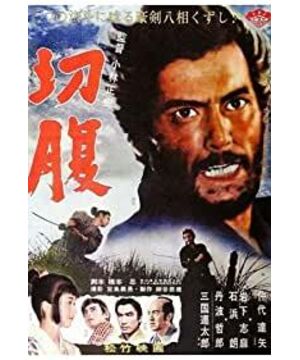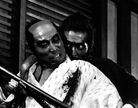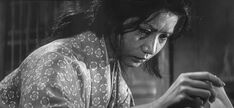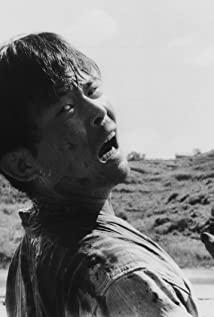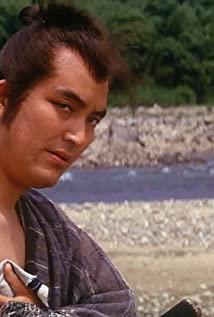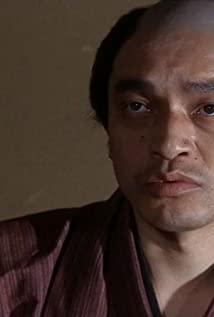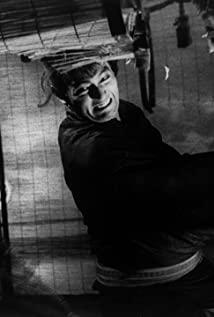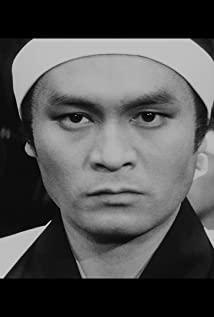This article contains serious spoilers for the movie "Cut the Belly". If you haven't seen it, please consider whether to continue reading. Again, please consider continuing to read as appropriate. Text/Pushpinski
Kobayashi Masaki (1916-1996) Over the years, among Japanese directors, Kobayashi Masaki is one of my favorites and respects. This is not just because he made films like "Black River" (1956), "Conditions on Earth" (1959-1961), "Stranger Things" (1964), but also because of a film in 1962 - "Cut the Belly" . I watched it back and forth no less than five times. If "Conditions in the World" made me completely dumbfounded and stunned, "Cut the Belly" completely convinced me.
Cut Belly Movie Poster
The title story of "Cut the Belly" takes place in 1630, which is the seventh year of Kuan Yong of the Tokugawa shogunate (the third year of Ming Chongzhen in China at that time). At the beginning of the film, it kicked off with the narration of Ii Jia Lao (Rentaro Mikuni). The Ii family belonged to the lords of the time, and in terms of rank, under the shogun (Tokugawa Iemitsu), this lord was the most powerful. Similar to ancient China, the landlord family has its own book of enlightenment (translated like a memorandum). It’s okay, just remember who you met today and who you are going to visit tomorrow. Jingyi’s family is no exception. 5 On the 13th, in the morning, I was still remembering the fresh trout sent by someone:
But at four o'clock in the afternoon, a self-proclaimed retainer of the Fukushima family in Hiroshima, Yuanyun Prefecture, Tsuyun Hanshiro (played by Tatsuya Nakadai), came to the Ii family's mansion and asked to commit suicide by incision of the precious treasure. This is also true in history. At that time, in order to prevent the revolt of the lords and daimyo, the generals adopted the "hajj alternation" system. In fact, it centralized power and weakened local power, so many lords and daimyo had to lay off staff, and many samurai had to be laid off. re-employment. But you said that if you re-employ, you will re-employ. The government and the master don't care about you, and a martial artist has become a street dog. Therefore, at that time, many ronin could not bear the humiliation, and chose to commit suicide by cutting their abdomens to maintain their final dignity.
In the belly-cutting ceremony at the end of the Edo period, you can see the men in black behind the belly-cutters (Jiecuo people). Of course, there are samurai who really died for their dignity, but soon, some princes were already laying off staff and were unable to recruit more. A lot of ronin, when they come to the door to cut the abdomen, often give a little money to send these people away, which makes the suicide of the cut abdomen become a gimmick for some people, and extorting money is a serious thing. Back to video. The first reaction of the Jingyi family when they heard this was: You must have come to corrupt money again! But Jiang was still old and hot, and he decided to meet Jinyun anyway. During the conversation, the Jingyi family asked deliberately, since you used to work in the Fukushima family, do you know a man named Qian Qianyan begging for a daughter?
It turns out that Qian Qianyan's daughter-in-law, played by Shi Banglang, also came to Jingyi's house a few months ago. He was also laid off and could not find another job. He wanted to use this special method to find a job. The Jing family also promised that the lord Bennosuke was not here now, but he admired his behavior and planned to meet Qian Qianyan's daughter. . However, there were differences within the Jingyi family. Some people thought that it was better to just give some money away, but others thought that if this was done, the family would be humiliated, and more such people would come to extort money later.
In the end, the Jingyi family decided to take care of the plan. Do you want to have a belly incision? OK, we will make it for you. There is a detail at the end of the film. When Qian Qianyan begged her to change her clothes and wait for the lord to meet, the Ii family retainer Hikakuro Alisaki appeared. He lied that the lord Bennosuke admired Qian Qianyan-kun's spirit and courage, although he wanted to. I have left a minister, but I have no choice but to be so determined to die alone, and it is not easy to stop it, so please die and show us! Qian Qianyan begged him to give him a day or two of grace (the reason will be explained later), but Yankuro sternly refused.
Qian Qianyan begging for a woman before committing suicide by incision Incision is a method of suicide that was widely spread after the Heian period in Japan. It is now generally believed that the robber Fujiwara Hosuke during the Yongzuo period was the first person to perform abdominal incision in Japan. The Japanese believe that the abdomen is where the soul and emotions of a person are, and it is the most dignified method of death (compared to beheading) to be able to show the soul.
"Ichimonjiki" and "Tenmonjiki" illustrate the traditional method of abdominal incision in the Edo period is "Tenmonjiki". As the name implies, the abdominal incisor should hold a knife (rib difference) in the right hand, firstly from the left side of the rib to the right side, and then Another vertical slash from top to bottom... But this method of death is too difficult. Many people basically go down with a horizontal slash and it is extremely painful, and it is basically impossible to complete a vertical slash. Therefore, the "one-word cut" was developed later, which was cut sideways with one knife. However, this kind of belly-cutting person often cannot die in a short period of time, so a "wrong person" is needed to decapitate the belly-cutting person from the back when he is about to fall to the ground to save him from suffering.
The knife used to cut the abdomen - Wakizashi, wrapping the white blade with the paper paper In the film, the so-called traditional abdominal cutting method is the so-called traditional method of cutting the abdomen by Yankuro to ask Qian Qianyan to ask for a daughter. His reason is still very high-sounding, saying that the current abdominal cutting ceremony has been degenerate. Many belly cutting people just reached for the knife, and the knife of the wrong person fell... This is not good, we want to return to the tradition, so wait for you Qian Qianyan I'll chop off your head after the cross cut is done. What's worse is that Qian Qianyan, because of his poverty, had already pledged his real sword to the pawn shop before he came, but now he is carrying a bamboo knife!
Qian Qianyan's begging for a woman could only complete the abdominal incision with a bamboo knife. In fact, the fact that she was finally able to pierce her abdomen with the help of the ground was truly shocking. However, Kobayashi Masaki handled it very well. Because it is a black and white film, the picture is not bloody, and the camera switching, music settings, lighting and atmosphere are definitely textbook-level.
The scene of incision at the end of the Edo period. The incisor knelt on the ground and accepted the order of incision. So far, Kobayashi has completed his parallel corresponding narrative in the film: Qian Qianyan and Jin Yun, two people who went to Jingyi's house to cut their belly, and Qian Qianyan's story was told through the mouth of the old Jingyi family. The Jingyi family always said that this is nothing more than trying to frighten Jin Yun, why can't you think about it, go back. Everyone knew that Jin Yun was completely unmoved, and in desperation, the Jingyi family had no choice but to set up a new abdominal incision ceremony in the atrium.
There is movement in stillness: the use of wind in "Cut the Belly" is very subtle. Before cutting the abdomen, Jin Yun asked a wrong person to be his deputy, and he named Hikokuro Alisaki because he heard that he is a Shinto no-mind-flowing person. The masters (Yuan-ryu, Shinto no-nin-ryu, Suzuki-style no-nen-ryu, Fusang nin-ryu, Fujishin-ru... There are many martial arts schools in Japan), but Hikokuro said that he was sick at home, and he asked the messenger to go to his house to find Hikokuro. For a while, Jin Yun seemed to want to pass the boring waiting, and then revealed that Qian Qianyan was actually a person who knew me very well! The story finally had an intersection in the 40th minute of the film: it turned out that Qian Qianyan was the son-in-law of Jin Yun (who knows this is a theme of revenge). But this is not a simple revenge story.
Jin Yun, who is holding a Japanese longbow, and Jin Yun in the Jinnei film lived a stable life more than ten years ago. He has a good relationship with another retainer, Qian Qianyan, and his son is Qian Qianyan. Ask for a girl. Jin Yun's wife has long since passed away, leaving behind a daughter named Mibao. There is no war in the country, and these retainers and warriors can only do the work of building bricks in peacetime. But in June 1619, General Tokugawa believed that Fukushima Castle had been restored and built, so he exiled Jinyun's protagonist, Fukushima Masaki, to Kawanakajima. The boss was demoted, and more than 12,000 ministers under him lost their livelihoods. Jinnai decided to commit suicide by incision (called "first belly" in Japanese) before the lord, and left a suicide note before his death, asking Jin Yun to take care of his son Qian Qianyan. At this time, the film switches back to the scene of the abdominal incision - the messenger came back and reported that Hikokuro had a fever and was in pain, so he couldn't come. So Jin Yun proposed to let Hayato Yazaki and Uma Hebian be the assistants of Jiecuo. Strangely, both of them were also ill...
Jing Yijiao found out that Jin Yun's visitor was not good, and his face began to twitch. Only then did Jing Yijiao feel that something was wrong: Jinyun named the three wrong people who were "sick", which was too strange. The Jing Yi family decided to prepare in advance. If something unexpected happens, they will be executed on the spot. Anyway, in my own home, what history is written in the book is also up to me to decide.
The composition of Kobayashi Masaki's film: the abdominal incision took place in the atrium, and all the retainers were surrounded by them. Therefore, the Jingyi family asked Jinyun to quickly perform the abdominal incision on the grounds that it was not early and the three people you designated were sick. However, Jin Yun insisted that one of these three people must be his deputy. At this time, the atmosphere suddenly became tense. The Jingyi family decided that Jin Yun's intention was not to cut the abdomen, and wanted to strangle him on the spot in the atrium.
In 2011, Takashi Miike remade the film and named it "One Life". In order to control the situation, Jin Yun persuaded Jing Yi to listen to him and continue to tell the story. The Jingyi family has long been impatient, saying that they are not interested in listening to you. Jin Yun threatened, if you don't listen to my story, I will sacrifice my life to kill you now, and your people will die a lot, you can judge for yourself. Jing Yi calmed down: "Tell me the long story short, I'm not interested in dull and absurd stories."
In the Edo period, the battle of Sekihara, the combined battle of the screen, Tsuyun, continued to tell his story. After the Battle of Sekigahara (the largest civil war in Japan since the Onin Rebellion), Jin Yun, who had no lord, brought his daughter and Qian Qianyan's daughter to Edo. The father and daughter relied on the umbrella to make a living, while Qian Qianyan became a private school teacher, but only enough to make ends meet. Daughter Mibao was 18 years old at this time, and Jin Yun had the idea of marrying his daughter to Qian Qianyan. Although Qian Qianyan is poor, she also has a secret love for Meibao, so the two are united. Sadly, not long after the marriage, Meibao first contracted tuberculosis due to overwork, and then gave birth to a child, Jin Wu, who had a high fever, but at this time, the family had no money to hire a doctor to see the child.
The Japanese actress Shima Iwashita, who plays Jinyun's daughter Miho, looks a bit like Lv Liping's film. Here, the narrative of Qian Qianyan's incision is linked to the beginning: Qian Qianyan came to Jingyi out of desperation in order to see a doctor for her child. Family. Who would have thought that it would become a goodbye, and there was no chance to say goodbye. In the evening, the retainers of the Jingyi family (that is, the three Jin Yun later named by mistake) brought Qian Qianyan's body to Jin Yun's house, expressing great contempt for Qian Qianyan's cutting his abdomen with a bamboo knife: although he resolutely went Die, but how could a samurai end himself with such an unseemly tool. Afterwards, the child Jingo died and Mibao passed away——Tsuyun Hanshiro, who was severely hit, was completely desperate.
The story of Jin Yun and his daughter Miho facing Qian Qianyan's corpse is basically finished here, but before the belly cut, he and the Jing Yi family had a wonderful conversation. Jin Yun expressed his unforgiveness for defrauding money in the name of belly-cutting, but for Qian Qianyan, Jin Yun believed that the Jingyi family deliberately set up a plan to kill Qian Qianyan in order to kill one and one hundred. Why do you say that? As mentioned earlier, when Qian Qianyan begged for grace for a day or two (going home to take care of the affairs behind him), no one asked him why he did this, but instead pressed him step by step to insist that Qian Qianyan must be cut on the same day. So in the end, Jin Yun asked, "Isn't it okay to ask, why didn't anyone ask?" Secondly, after such a continuous blow, Jin Yun's thoughts on the spirit of the samurai also changed. In the conversation between the elders, he said that the samurai spirit is nothing but an ornament.
Speaking of Qian Qianyan's plea before his death, Jin Yun asked the elder Jing Yi: "Isn't it okay to ask, why hasn't anyone asked?" Before that, after learning that Qian Qianyan used a bamboo knife to cut his abdomen, Jin Yun asked Only then did he realize that he had never thought that samurai swords could be sold for money! He valued honor and dignity so much that when his daughter fell ill and his grandson had a high fever, he never thought of exchanging his saber for money to supplement his family. At this time, Jin Yun was filled with remorse and guilt, feeling that it was his so-called dignity that killed Qian Qianyan. However, Jin Yun was also a samurai. Everything he did was the hallmark of a warrior of that era: honor, absolute loyalty to the lord, self-cultivation, self-control, keeping promises. Because of this, he still couldn't escape the fate of the final cut. However, just a few days before his death, he had already cut off all the buns of the three Jiexuo people with knives (the bun was the status symbol of a samurai at the time, and it was a great shame to have the bun cut off, it was a life-threatening situation. It would be better to die), and as a trophy, it was thrown in front of the elder of the Jingyi family.
The duel between Jinyun and Hikokuro is an absolute classic in film history. It is worth mentioning that in the second half of the film, Kobayashi Masaki spent about 8 minutes to show the whole process of the duel between Jinyun and Hikokuro. Tatsuya Nakadai and Tetsuo Tanba's performance skills are really good, from expressions, steps to martial arts movements can be described as seamless. Of course, Toru Takemitsu's soundtrack is even more amazing. Let's take a look at Nakadai Tatsuya's eyes again:
At the time of this film, Tatsuya Nakadai was only 30 years old
Compared with Tatsuya Nakadai, Ichikawa Hailaozang, who played Jinyun in the 2011 version, has obviously a lot of eyes deliberately and weakly. At the end of the film, Ii family fully understood Jinyun's intention and decided to surround him on the spot. Jinyun Hanshiro fought desperately, killing four people and seriously injuring eight, but in the end he was outnumbered.
Compared with Jin Yun, the behavior of the Ii clan elder was undoubtedly the least in line with the spirit of the samurai - even if a large group of retainers attacked one person, in the end, the musketeer was actually used. This is also the rich meaning of the film "Self-cutting": Jin Yun, who had a reflection on the samurai spirit, finally had to perform the samurai ceremony, but a family who said they respected the samurai spirit the most killed Jin in front of their ancestors with the most unseemly method cloud.
Jinyun Hanshiro, who completed abdominal incision before his death, but the saddest thing is that the old Ii family instructed his subordinates afterwards that Jinyun died of abdominal incision. Hayato and Hebian Yuma have already humiliated the family and were given death internally (self-cutting belly), but the unified view externally is that their death has nothing to do with Jinyun.
The Ii family elder with half of his face in the shadows, after he had the final say in history, the Ii family felt the following record in the book: "The former Fukushima retainer, Jinyun Hanshiro, cut his stomach and committed suicide at 6 o'clock in the evening. His words and actions are a bit strange. , many people thought he was insane... Our response was not inappropriate and greatly enhanced the reputation of the Jingyi family." It begins with the narration of the old Jingyi family and ends with the narration of the old Jingyi family. As if nothing happened.
The ancestors of the Ii family who appeared in the film: Tokugawa Four Heavenly Kings, Ii Naozheng (1561-1602). Although there is only one empty shell, its significance in the film is very deep
There are many motives for cutting the belly. There are those who take guilt and atone for their sins with death, and there are those who are grateful and cherish their virtues, who cut the belly to die for the Lord (chasing the belly). In addition, there are those who were defeated but did not yield, cut their belly to die for the country, and moved the monarch with death, just like the corpse remonstrance in ancient China. Passive incision, most of which are crimes and should be punished, is ordered to be incised, similar to the Chinese death penalty.
The more famous abdominal incision should be Yukio Mishima. He originally wanted to make a perfect cross incision, but he could not do it with only one word incision. His intestines flowed all over the place. "Guan Sun Liu" interceded for Mishima, but he was unable to cut off his head even after beheading him several times. Brother Mishima was in pain and tried to commit suicide by biting his tongue. Council member Koga Haojing executed it, and this was a success. It can be seen that intermediation is really a technical job.
From "Leviathan"
View more about Hara-Kiri reviews


